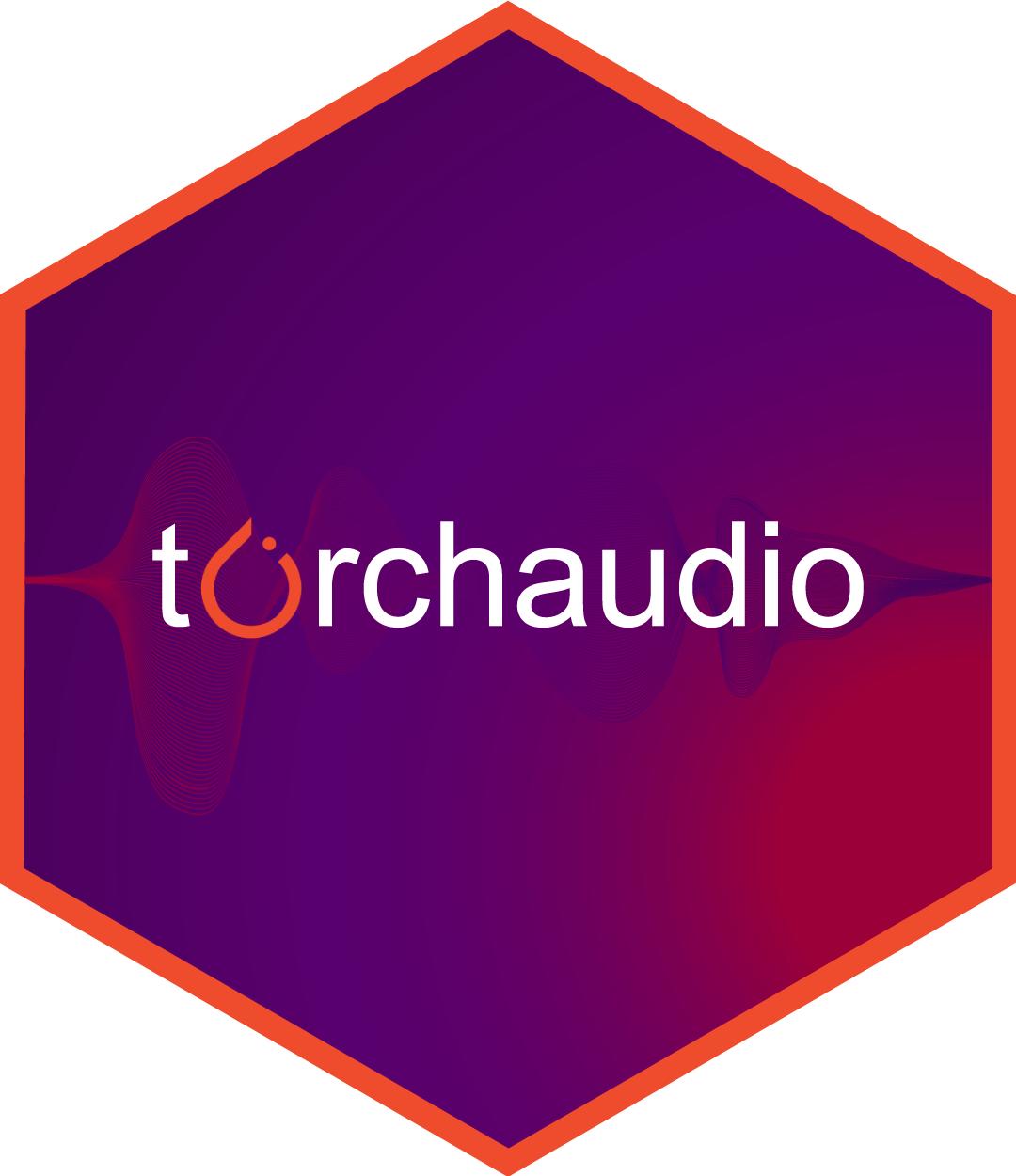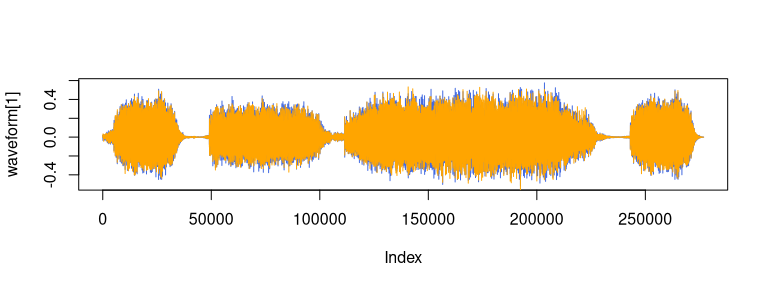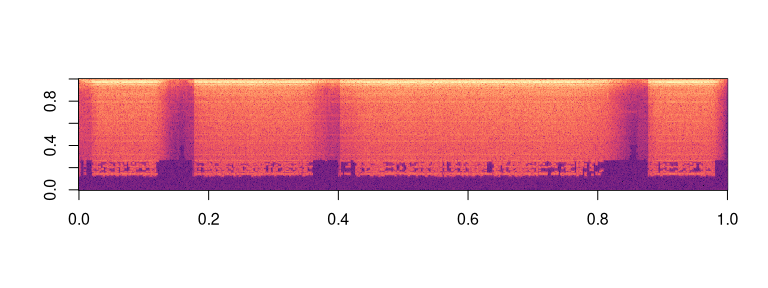R Interface to 'pytorch''s 'torchaudio'.
torchaudio 
torchaudio is an extension for torch providing audio loading, transformations, common architectures for signal processing, pre-trained weights and access to commonly used datasets. The package is a port to R of PyTorch’s TorchAudio.
torchaudio was originally developed by Athos Damiani as part of Curso-R work. Development will continue under the roof of the mlverse organization, together with torch itself, torchvision, luz, and a number of extensions building on torch.
Installation
The CRAN release can be installed with:
install.packages("torchaudio")
You can install the development version from GitHub with:
remotes::install_github("mlverse/torchaudio")
A basic workflow
torchaudio supports a variety of workflows – such as training a neural network on a speech dataset, say – but to get started, let’s do something more basic: load a sound file, extract some information about it, convert it to something torchaudio can work with (a tensor), and display a spectrogram.
Here is an example sound:
library(torchaudio)
url <- "https://pytorch.org/tutorials/_static/img/steam-train-whistle-daniel_simon-converted-from-mp3.wav"
soundfile <- tempfile(fileext = ".wav")
r <- httr::GET(url, httr::write_disk(soundfile, overwrite = TRUE))
Using torchaudio_info(), we obtain number of channels, number of samples, and the sampling rate:
info <- torchaudio_info(soundfile)
cat("Number of channels: ", info$num_channels, "\n")
#> Number of channels: 2
cat("Number of samples: ", info$num_frames, "\n")
#> Number of samples: 276858
cat("Sampling rate: ", info$sample_rate, "\n")
#> Sampling rate: 44100
To read in the file, we call torchaudio_load(). torchaudio_load() itself delegates to the default (alternatively, the user-requested) backend to read in the file.
The default backend is av, a fast and light-weight wrapper for Ffmpeg. As of this writing, an alternative is tuneR; it may be requested via the option torchaudio.loader. (Note though that with tuneR, only wav and mp3 file extensions are supported.)
wav <- torchaudio_load(soundfile)
dim(wav)
#> [1] 2 276858
For torchaudio to be able to process the sound object, we need to convert it to a tensor. This is achieved by means of a call to transform_to_tensor(), resulting in a list of two tensors: one containing the actual amplitude values, the other, the sampling rate.
waveform_and_sample_rate <- transform_to_tensor(wav)
waveform <- waveform_and_sample_rate[[1]]
sample_rate <- waveform_and_sample_rate[[2]]
paste("Shape of waveform: ", paste(dim(waveform), collapse = " "))
#> [1] "Shape of waveform: 2 276858"
paste("Sample rate of waveform: ", sample_rate)
#> [1] "Sample rate of waveform: 44100"
plot(waveform[1], col = "royalblue", type = "l")
lines(waveform[2], col = "orange")

Finally, let’s create a spectrogam!
specgram <- transform_spectrogram()(waveform)
paste("Shape of spectrogram: ", paste(dim(specgram), collapse = " "))
#> [1] "Shape of spectrogram: 2 201 1385"
specgram_as_array <- as.array(specgram$log2()[1]$t())
image(specgram_as_array[,ncol(specgram_as_array):1], col = viridis::viridis(n = 257, option = "magma"))

Development status
Datasets (go to issue)
- [x] CMUARCTIC
- [ ] COMMONVOICE
- [ ] GTZAN
- [ ] LIBRISPEECH
- [ ] LIBRITTS
- [ ] LJSPEECH
- [x] SPEECHCOMMANDS
- [ ] TEDLIUM
- [ ] VCTK
- [ ] VCTK_092
- [x] YESNO
Models (go to issue)
- [ ] ConvTasNet
- [ ] Wav2Letter
- [x] WaveRNN
I/O Backends
- [x] {av} (default)
- [x] {tuneR}
Code of Conduct
Please note that the torchaudio project is released with a Contributor Code of Conduct. By contributing to this project, you agree to abide by its terms.
